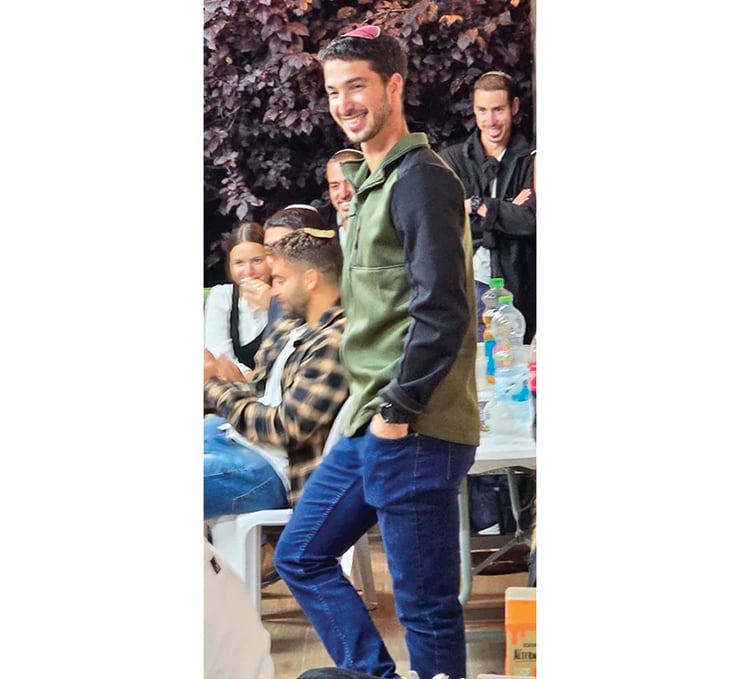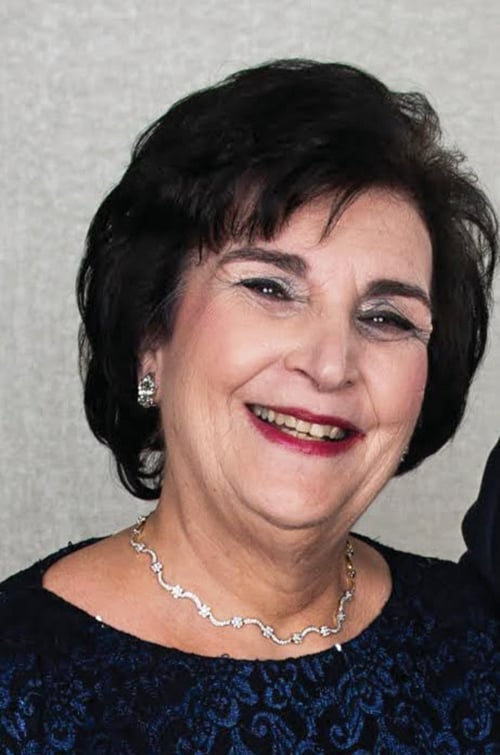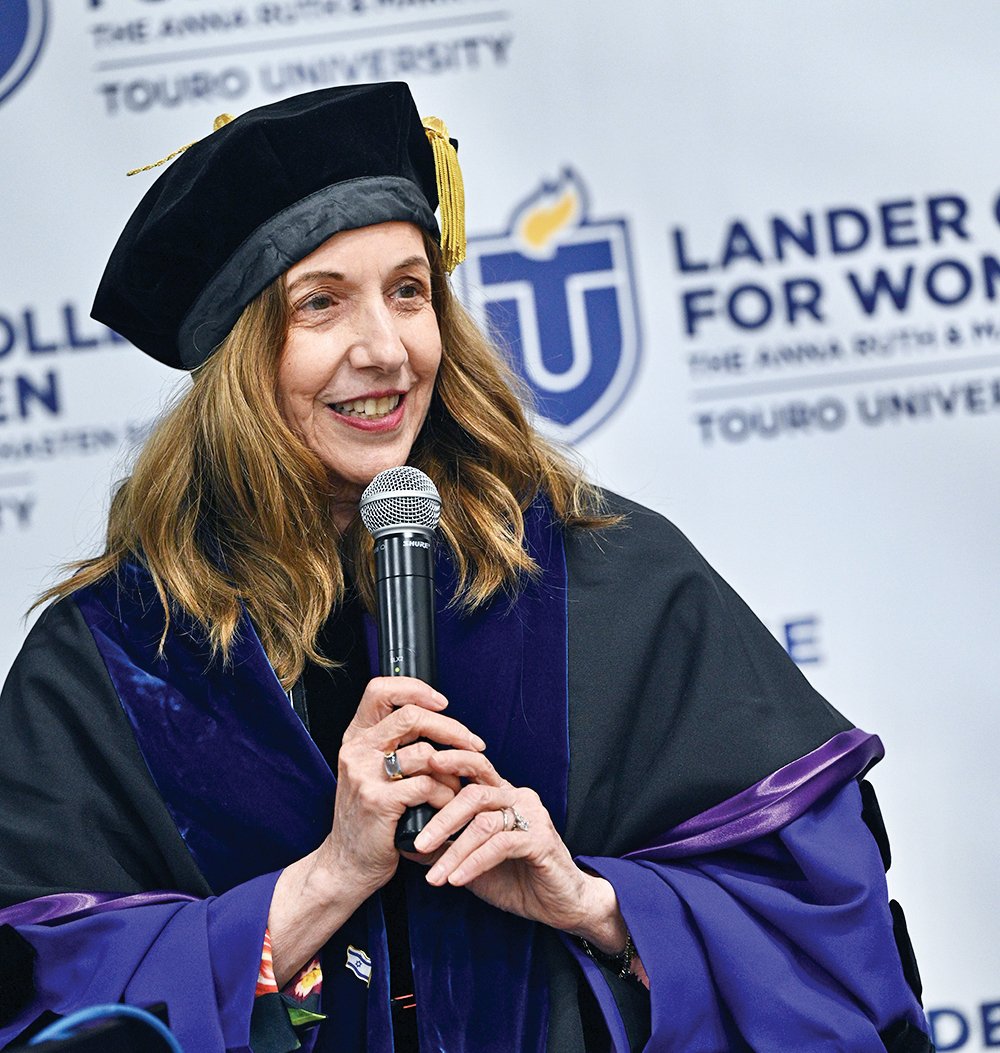
at his engagement party.
This week, many festive celebrations marked the siyum of Masechet Bava Batra across the Jewish world. Yet one man commemorated it alone.
A Message from
Dr. Yonatan Schussheim
“I’d appreciate it if you could spare me a couple of minutes,” Dr. Yonatan Schussheim wrote to me this week. “I’d like to share something that I think will interest you.”
Dr. Schussheim, an OB-GYN, is the son of the late Dr. Eli Schussheim, zt”l, the legendary founder of Efrat. Initially, I assumed he wanted to discuss something related to the organization’s activities, but I was mistaken.
“I’m speaking to you as the father of Emunah, who was engaged to Yehonatan Deutsch, Hy”d,” he began.
He didn’t need to refresh my memory. Even in a year of immense loss, Yehonatan’s story is hard to forget: A young man full of promise, tragically murdered in a shooting attack in the Jordan Valley just weeks before his wedding and only days after returning from combat in Khan Yunis. I recalled, too, that on Simchat Torah, Yehonatan had been deployed to Nachal Oz, where he and his unit saved lives during house-to-house operations.
“You write often about the Daf Yomi,” Dr. Schussheim said. “This morning, I was zoche to complete Bava Batra, and I penned a few thoughts about my experience.”
As I began to read, it became clear to me that despite the many other noteworthy milestones celebrated this week, Dr. Schussheim’s story held a unique significance.
‘The Most Difficult Siyum of My Life’
“This was undoubtedly the most difficult siyum of my life,” Dr. Schussheim began, “and no, it wasn’t due to the complexity of the masechet—I’ve completed more challenging ones. Nor was it its length. It was the first siyum I performed after my previous one.
“One might naturally ask: doesn’t every siyum follow the previous one? Indeed, when I prepared for this siyum, I couldn’t disconnect from my prior one—the siyum of Bava Metzia, which accompanies me daily,” he continued.
“I celebrated that siyum on Friday, the 15th of Sivan, Erev Shabbat Parshat Beha’alotcha of 5784 (2024), during the engagement party of my daughter, Emunah, and her fiancé, Yehonatan Deutsch.
“To give the young couple a meaningful, spiritual gift, I completed Bava Metzia during the celebration. I connected the tractate’s opening Mishna to themes of a harmonious marital life, but what lingers most vividly in my heart and mind are the words I said to them afterward.
“In life, as in the Talmud, we transition from one ‘masechet’ to another: childhood, followed by adolescence, and so on. Each has its own unique challenges, moments and lessons. You are now entering the ‘masechet’ of engagement—a profound, formative experience that prepares you for the next stage. Invest in this tractate so it remains a cherished foundation. I have no doubt that there will be times when you’ll wish to revisit this period.
“I could never have imagined the weight those words would carry in the future.”
Learning Amidst Unimaginable Pain
“I began studying Bava Batra immediately after completing Bava Metzia. I looked forward to the long, fascinating journey through one of the Gemara’s lengthiest masechtos. I couldn’t have known it would become the hardest learning experience of my life.
“On Sunday, the 7th of Av 5784, Yehonatan was murdered in a terror shooting at the Mechola Junction while on his way to visit our home in Ofra. He had planned to see Emunah and continue preparing for the ‘masechet of marriage.’
“There are no words to describe the magnitude of our grief, shock and pain during those horrific days. After several days, I attempted to return to my Daf Yomi routine, only to find the effort nearly impossible. Waking early after sleepless nights, holding the Gemara with trembling hands, and struggling to focus on the text—all I could see were ‘letters flying in the air.’”
‘Standing Shiva’
This year, tragically, we’ve heard from many bereaved parents and widows, too many. But Dr. Schussheim didn’t even sit shiva for the man who was almost his son-in-law. In fact, he is in the secondary circle—the one that is meant to strengthen the mourners.
I recently heard Dr. Yossi Ben-Gal, grandfather of fallen hero Captain Ro’i Beit Yaakov, Hy”d say that he, as the grandfather, does not sit shiva but “stands shiva.” What an apt description. The grandparents of the fallen stand around the grieving parents, supporting them, caring for them, giving encouragement. But they, too, need strength and solace.
Perseverance in Honor of Yehonatan
“How did I continue studying daily and reach the finish line of Bava Batra this week?” Dr. Schussheim asked rhetorically. “The simple answer is: because of Yehonatan.
“At first, the desire to honor his memory gave me the strength to start again. But I needed more.
“Then one morning, Yehonatan’s father, Uri, shared a message he received. A friend had recalled Yehonatan’s words at his engagement party:
‘“The battles we fight, the extraordinary moments—they’re the easy part. What truly builds a country, a nation, a people, are the small acts: another home, another family, everyday routines. That’s the real battle, and I feel privileged to contribute to it.’ Reading those words gave me the strength I desperately needed. I couldn’t let Yehonatan down. I had to carry his legacy forward.”
A Quiet Victory
“Each morning since, as I sit with the Daf Yomi despite exhaustion and heartache, I think of Yehonatan’s message. It sustains me. Though my focus isn’t what it once was, this daily learning is a victory—a testament to the small acts that build lives and nations.
“Symbolically, just before completing the masechet, we learned of the capture of Yehonatan’s murderers. While it doesn’t bring solace, it delivers justice and reaffirms the values foundational to masechet Sanhedrin, which I will begin next,” he said.
Dr. Schussheim concluded his letter with a poignant reflection: “If a siyum is meant to be a celebration, for me, it was a deeply personal and complex moment. I completed the final lines, recited the traditional declaration quietly to myself, and immediately opened Tractate Sanhedrin to begin anew.”
A Resonant Message
Festive siyumim bring joy to the learners, their families and honor to the Torah. Yet, this solitary siyum—uttered in a choked voice, alone in a quiet room—surely resounded loudly in the heavens.
Dr. Schussheim’s story illustrates the resilience of the Jewish spirit and the eternal power of Torah study, especially in times of hardship.
His closing words echo powerfully:
“May this learning, along with all my studies, elevate the soul of Yehonatan Yaakov ben Uri Yosef, Hy”d. And if it inspires even one struggling individual to persevere in their learning, it will be to Yehonatan’s merit.”
Yedidya Meir is a journalist and radio broadcaster. He writes a weekly column for B’Sheva.











